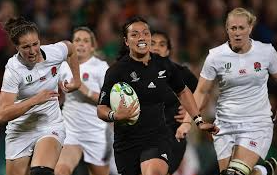A recent rugby match in the United Kingdom, it was reported, had everything – everything, that is, except points. Incredibly, a Midlands 2 West (South) league rugby match ended with both sides not able to score one point between them; there were six failed penalty attempts (though one did hit the post) while there were several near misses for tries, including a knock-on five metres from the try line. It was pointed out, too, that it was not because they were poor teams or because extreme weather had a bad effect on the standard of play; it was just one of those games where it seemed like neither team would ever score! That begs the question, therefore: was it a good game?
Interestingly, around the same time as that rugby match, a non-league cup match in the lower divisions of English soccer equalled the record for the longest penalty shootout in English football. The two teams, Taunton Town and Truro City, drew the match 2-2 so proceeded to a penalty shoot out when thirty-four penalties were taken before one side emerged victorious, eleven penalties having been missed (one of which was described wonderfully as being so poor it “would have been signalled a wide in cricket”!) Once again, we might ask the same question: was it a good game?
Many people will only consider a match to be entertaining and enjoyable if there are lots of points or goals scored. Perhaps they would go by the mantra that there is strength in numbers. So, let us consider for a moment the following question: if a rugby match at schoolboy level was won by 100-0 and another rugby match ended in a 50-50 draw, which would have been the better game?
Of course, we may well first answer it by saying it depends on who we ask. If we asked the school authorities, one would no doubt say the 100-0 victory was a brilliant game, firstly because they won and secondly because they won by so many points, but the other would not. If we were to ask the players, we might get a different answer. Some of the players who won by the large margin would probably have loved the match because it showed them to be so good, especially those who scored many points, but others in the winning team actually might not have enjoyed it as it was boring, being too easy and lacking in any challenge. Those who were on the losing side would for the most part have said it was a poor game as it was miserable losing by so many points. What then if we asked the crowd which was the better game? The supporters of the winning team would have no hesitation in saying the win by a hundred points was the better game as it was exciting with lots of points being scored throughout. The supporters of the losing team would not have enjoyed that game at all. Finally, if we were to ask the national coach which was the better game, the answer would probably have been the drawn match, it proving to be a keenly contested, tight, exciting match, with players being pushed to reveal their true talent and toughness.
The answer to the question, “Which was the better game?” may also depend on what criteria we base our response. If it was simply a matter of a school’s reputation, then the massive victory would superficially be seen as better. If it was a matter of entertainment, there may be different views; the same number of points was scored but a close contest may be more exciting. However, if the criteria was based on the educational value, there would only be one answer: the drawn match.
The fact is, when one side is so totally dominant and over-powering, the match has no value whatsoever. Players in the winning team do not need to try particularly hard and therefore become lazy and selfish, arrogant and complacent; they learn very little. They do not need to work on defensive skills as they are so dominant, which may be fine in that match but when they come across stronger opposition they will be in trouble as they have not had to defend.
The point is this: in keeping with the game of numbers, if we want a particular sport to develop we need twenty strong schools, not four. Teams need to be playing strong opposition every week if players on both sides are going to improve. We need close games. More is not always better. A 0-0 draw is often referred to as a “pair of spectacles”. We would need spectacles if we do not understand that low scores or close games are better education, entertainment and value for all concerned – players, schools, spectators or national coaches. It does not add up any other way.




